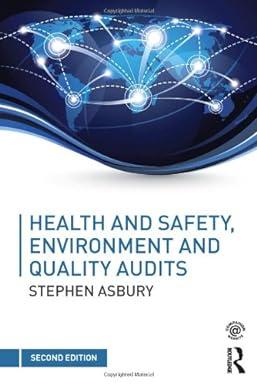Question
This is a four-part question: A bank has the following balance sheet for 2020. Also shown are the respective interest rates: Assets Amount ($MM) Rate,
This is a four-part question:
A bank has the following balance sheet for 2020. Also shown are the respective interest rates:
| Assets | Amount ($MM) | Rate, % |
| Business Loans | 50 | 6 |
| Corporate Bonds | 26 | 5 |
| Government Bonds | 18 | 2.5 |
| Cash | 7 | |
| Real Assets | 2 |
| Liabilities | Amount ($MM) | Rate (%) |
| Demand Deposits | 36 | 0 |
| Time Deposits | 45 | 1.1 |
| Inter-Bank Borrowing | 16 | 1.25 |
| Preferred Equity | 1 | |
| Common Equity | 5 |
Off-Balance Sheet Item
Of the business loans above, $10MM was drawn from a $35MM Credit Line. That is, assume the average amount of the Line drawn during the year is $10MM. The bank charges 0.25% for unused lines of credit.
I Assume reserve requirements are 3% for demand deposits, 0% for time deposits. How much excess reserves does the bank have?
II Suppose capital requirements are:
8% for loans
4% for bonds with risk of default
4% for inter-bank lending
2.5% for undrawn credit lines
- Does the bank have enough capital?
- What if the capital requirement for loans increases to 10%? Which of the following will cure the deficiency entirely, partially or not at all:
- The bank issues new shares with a market value of $2mm and uses the funds to make $2mm in new business loans.
- The bank issues $1mm in demand deposits and uses the funds to purchase $1mm additional government bonds.
- $5mm of the loans default (no capital is required for a defaulted loan that is written off).
III
- Calculate Net Interest Margin for the year.
- The bank receives additional $200,000 in non-interest (fee) income during the year, and pays $1.5mm in labor compensation and other expenses for the year. What is its ROE?
- The bank is considering issuing enough equity to replace all its time deposits. If nothing else changes, what is the new NIM and the new ROE?
What if it issues equity to replace half its time deposits?
IV From a pure income perspective, would the bank prefer customers switch their time into demand deposits? What would the downside be?
Step by Step Solution
There are 3 Steps involved in it
Step: 1

Get Instant Access to Expert-Tailored Solutions
See step-by-step solutions with expert insights and AI powered tools for academic success
Step: 2

Step: 3

Ace Your Homework with AI
Get the answers you need in no time with our AI-driven, step-by-step assistance
Get Started


